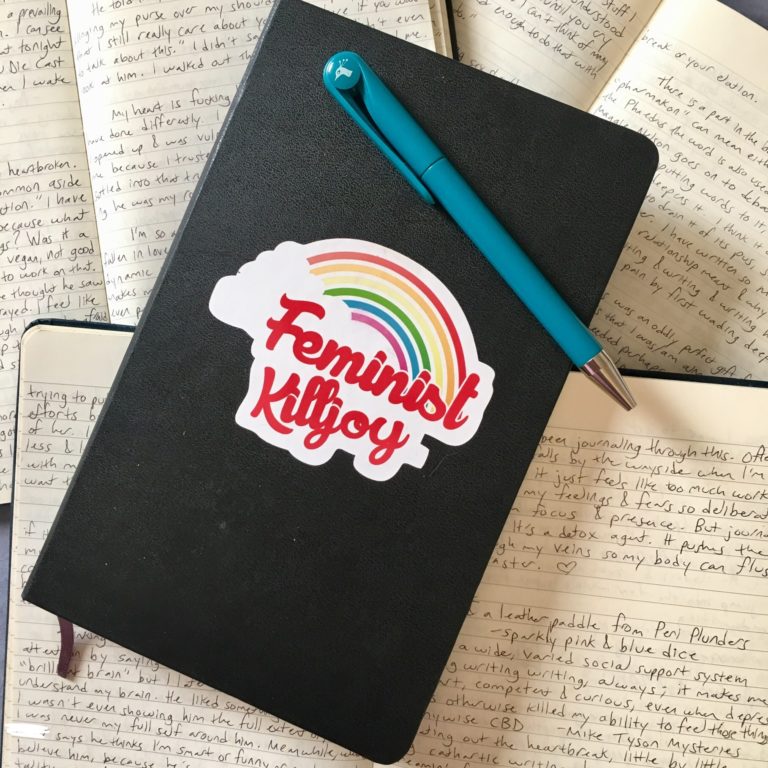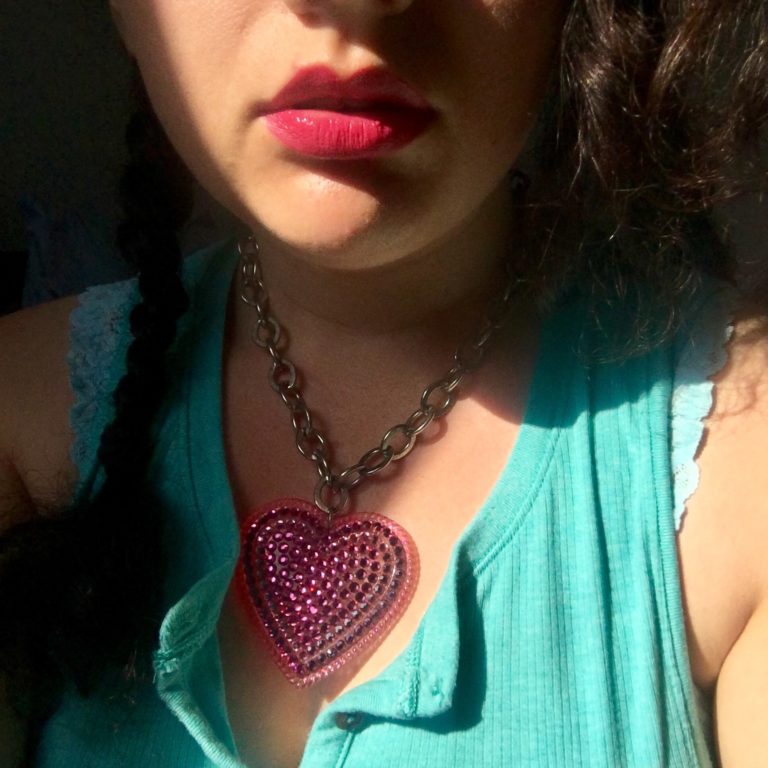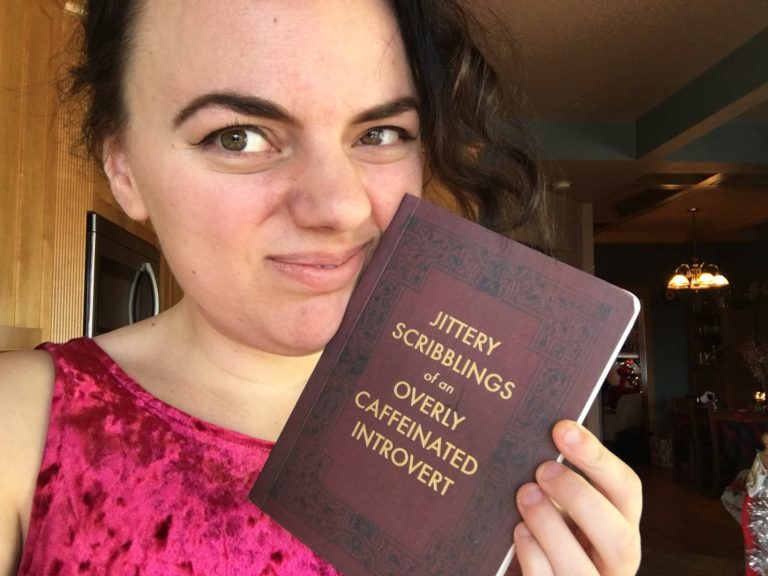
Any fellow introverts in the house? I bet there are…
Jung defined an introvert as someone who is more energized by the internal world than the external one. That is to say, an introvert expends energy when they have to deal with external things, like other people and attending events, and recharges their energy when they can return to the internal, by spending time alone and on introspective activities.
This is the definition I lean on when people seem surprised I identify as an introvert. Sure, I can be gregarious and chipper at a party; sure, I talk about my sex life on the internet; sure, you may not think of me as “shy” (although I certainly am that, too) – but setting all that aside, I expend my energy when I go outside of myself, and I replenish it when I turn inward and shut out the rest of the world for a while. It’s that simple.
In recent years, I’ve come to accept my introverted identity more and more, by reading books like Quiet and The Introvert’s Way. I’ve developed a skillset – not perfectly, you understand, but I’m working on it – that I think every introvert needs to master if they’re going to live a happy, healthy life that respects their temperament. Here are some skills I think are crucial for us inward-turning types…
Boundary-setting. This is important for everyone, and I use it to manage my energy levels all the damn time. If you’re not feelin’ a party but could do a one-on-one hang, request a coffee-date raincheck the next time a pal invites you to a rager. If you did an extroverty thing last time you saw your best friend, maybe they’d be up for a quiet art-gallery crawl this time. If you know you tend to get exhausted after a few hours with a friend, tell them upfront what time you have to leave by. (It’s okay to use work or sleepiness as an excuse, although I hope your friends are understanding enough that you don’t have to do that.)
Nowadays I’ll usually set a time constraint before I go to anything – “I have to leave by 11 because I have work in the morning,” “I’m gonna take off by 10 because I’ve been working all day and I’m pretty tired,” or even something as simple as “I can stay a couple hours!” without providing any additional details. These boundaries will leave your friends less confused and will make you look and feel like less of an asshole if you have to peace out in the middle of a party.
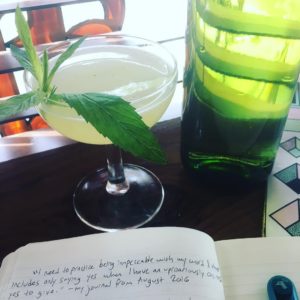 The art of the self-date. Some introverts are ride-or-die for their beds or bedrooms, as am I, but often I want to take myself out, too. I used to be terrified to do this – I worried people would judge me for being alone at locations frequented by pairs or groups – but after a while, I realized no one really pays that much attention to strangers. Fun fact: Julia Cameron calls these solo outings “artist dates” and says they’re vital to the creative process!
The art of the self-date. Some introverts are ride-or-die for their beds or bedrooms, as am I, but often I want to take myself out, too. I used to be terrified to do this – I worried people would judge me for being alone at locations frequented by pairs or groups – but after a while, I realized no one really pays that much attention to strangers. Fun fact: Julia Cameron calls these solo outings “artist dates” and says they’re vital to the creative process!
Some examples of self-dates: Go see a movie you’re interested in. Take your journal to a cocktail bar. Read a book on the patio of your favorite restaurant. Peruse a museum or gallery. Visit a bookstore, art supply store, or crystals shop. Treat yourself to a massage, mani-pedi, or facial. Sit on a blanket and people-watch in a park. Take your camera someplace pretty and snap some shots. Drop by a farmer’s market for ingredients and then make yourself a lovely meal. Hole up in the library for a while. Explore a public building you’ve never been in before. Go on a walking tour of local public art. Search on Yelp or Foursquare for a well-reviewed café/bar/restaurant in your area and go check it out. Get a rush ticket to the theatre. Go see an improv/sketch/stand-up show at your local comedy venue. Find an open mic to attend. Drop by a live jazz venue for an evening. Paint some pottery. Take a long walk while listening to your favorite podcast or audiobook. Bike to the beach. Find a balcony or rooftop to sit on with a nice cold drink.
Connecting and compromising with extroverts. This is easiest when the extroverts in your life are well-versed in the concept of introversion (I’m lucky that most of my favorite ones are!). For me, the most important parts of relating to extroverts have been 1) figuring out how to communicate about my mental/emotional energy limitations without hurting their feelings and 2) each of us compromising sometimes. #1 is easy enough: I’ll explain the Jungian concept of introversion outlined above if the person I’m talking to is unaware of it, and I’ll try to figure out what I need at any given time and ask for it specifically (“Can we just be quiet for a while?” “I need some downtime tonight, but I’d love to see you tomorrow!” “I have the energy to watch a silly comedy with you but not to go out to a party”). If necessary, I’ll remind them that it’s nothing personal, and that my issue isn’t with them but with my own energy levels.
The compromise piece can be a little harder, because it requires creative solutions (e.g. “Sure, we can go to your friend’s party, but I’m pretty tired so I might disappear onto the balcony to scroll my Twitter timeline for a few minutes here and there,” or, “Yeah, let’s go to your super-loud favorite restaurant! As long as we can sit in a booth in the back and have a nice focused one-on-one chat”). As is the nature of compromise, there will be times when you agree to do things you don’t strictly want to do. But if your favorite extrovert can snuggle up with you on the couch and silently watch your favorite show with you one night, you can probably bring yourself to accompany them to their chatty happy-hour function another night. Maybe you’ll just let them do most of the talking while you hang back and gaze admiringly at them. And hey, it’s more than okay if you duck out early and they stay another hour to meet a few more people, so long as you’re both okay with that arrangement.
 Setting realistic expectations for yourself. I have so often fallen into the trap of shaming myself for not being more social than I am. Feeling suddenly embarrassed about my barren social calendar, I’ll pack back-to-back plans into my week, hoping to feel like less of a hermit/recluse/loser. But I always end up miserable when I do this, wishing halfway through my second or third consecutive Big Night Out that I was in bed with a book instead.
Setting realistic expectations for yourself. I have so often fallen into the trap of shaming myself for not being more social than I am. Feeling suddenly embarrassed about my barren social calendar, I’ll pack back-to-back plans into my week, hoping to feel like less of a hermit/recluse/loser. But I always end up miserable when I do this, wishing halfway through my second or third consecutive Big Night Out that I was in bed with a book instead.
If you haven’t already figured out your ideal ratio of social time to alone time, you should! It’s also okay if it shifts. I’m more social in the summer than in the winter, for example, but not by a lot.
Paying attention to your energy levels over time – and perhaps even tracking them, in a journal or an app (my partner recommends Gyroscope or Day One) or however you prefer – can help teach you what tends to drain you dry and what tends to feel okay for you. For example, I used to sometimes double-book myself – “I’ll go to this family function and then drop by my friend’s birthday party across town!” I’d posit, ambitiously – but now I know that one Social Thing per day is pretty much my maximum; maybe two if they’re spaced out and I can get some downtime in between. It’s nice to know that about myself and be able to make plans accordingly!
Tapping out. Sometimes you think you’re gonna be okay at a social event, but then you spend a little while there and realize you’re… not. It’s awkward to leave before it’s socially acceptable to do so, but there are ways to do it smoothly and politely. I usually fall back on “tired” as my adjective of choice when doing this – it’s true, though most people tend to assume I’m tired in the “didn’t get enough sleep” way, which we for some reason see as a more legitimate excuse than social/emotional fatigue.
As with any instance of delivering potentially upsetting news, it’s good to bookend your “I’m leaving, byeee!” with more positive declarations. For example: “This party has been really fun! I’m tired and gonna duck out early, but let’s get together again soon so we can catch up properly.” Or: “I love talking to you, but I’m just not in a good place to be social today. Can I take you out for drinks next week?” It’s important to be kind and polite whenever you can – and you usually can.
 Recharging efficiently and well. Taking introverty time to yourself is pointless if you don’t actually use it to replenish yourself and make yourself feel good. That’s the whole reason you’re doing it, so might as well do it right!
Recharging efficiently and well. Taking introverty time to yourself is pointless if you don’t actually use it to replenish yourself and make yourself feel good. That’s the whole reason you’re doing it, so might as well do it right!
While sometimes my idea of introverting is mindlessly scrolling my Twitter timeline in silence for half an hour, generally I find that social media drains me instead of filling me up. As resistant as I may be to putting my phone down, sometimes that’s what I have to do if I want to recharge properly. There are few sweeter gifts I can give myself than an hour with my phone on airplane mode and my nose in a book (or my journal, or pressed into my pillow as I lie in bed in thoughtful silence). The more fully I revitalize myself during my time alone, the more kindness and exuberance I have to offer my friends, family, and partners when I spend time with them again. So I owe it to myself and to them to take good care of myself!
Introverts: what are your best tips for setting boundaries, connecting meaningfully with extroverts, respecting your introverted nature, and replenishing your social energy?
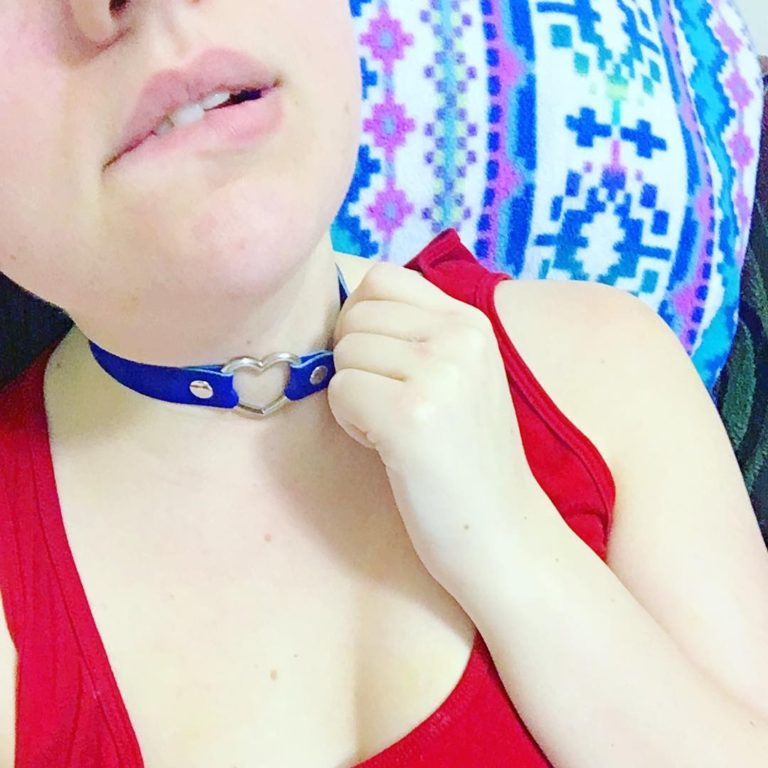
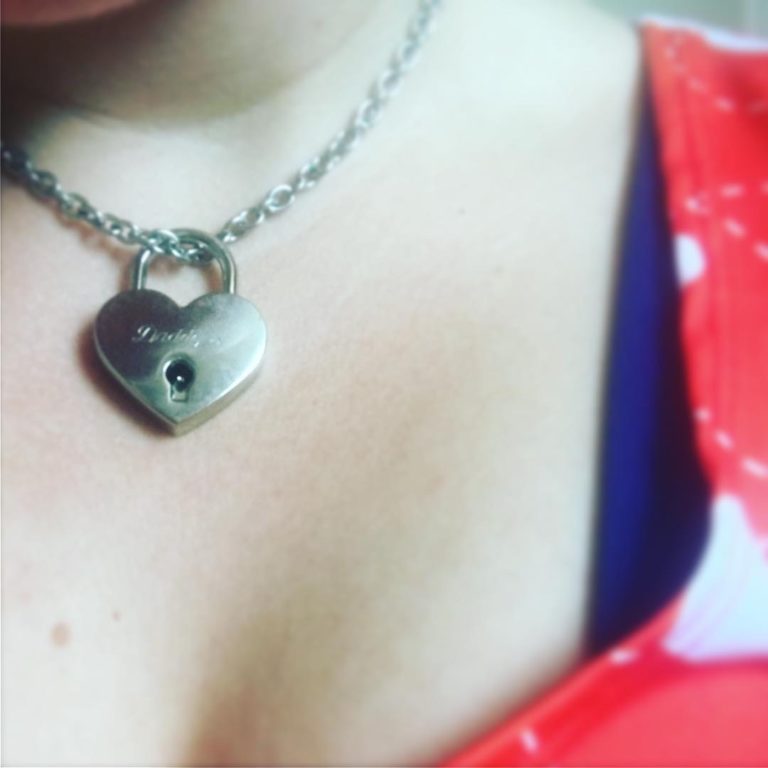
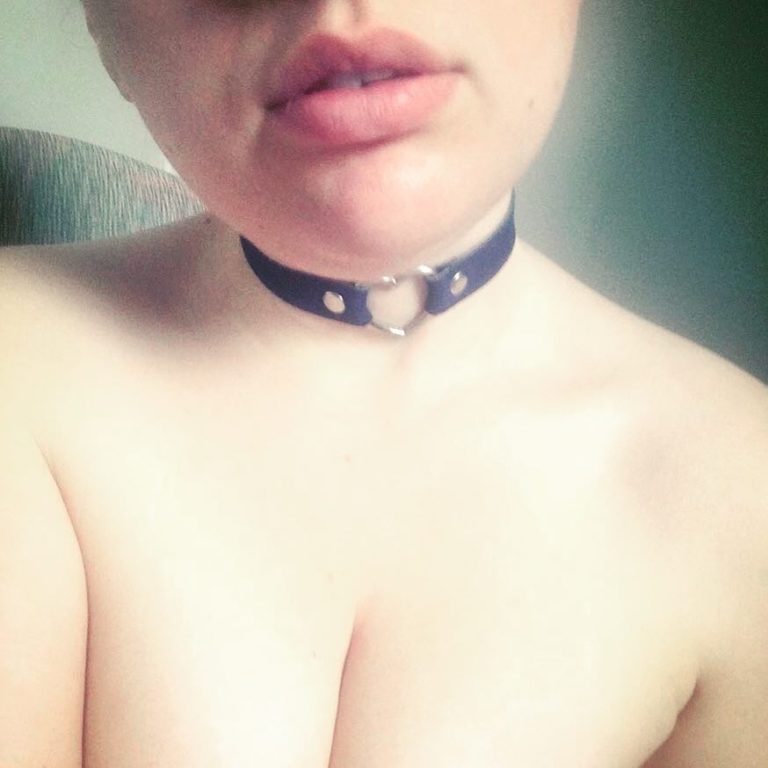

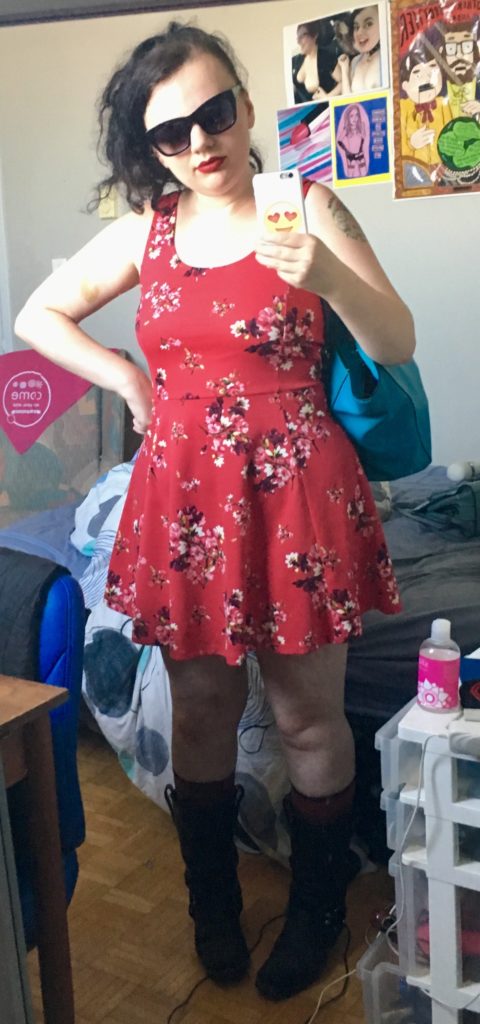 May 29th, 2018. I wore this out to a café to do a bunch of dayjob work, and then to a ServiceOntario office to get my health card renewed. Sometimes I like to dress cute on days that are utterly unglamorous, just to infuse a little je ne sais quoi into the banality of the day-to-day. I also feel like I usually get better service wherever I go when I’m dressed nicely and have lipstick on… which is problematic from a classism perspective, but good to know…
May 29th, 2018. I wore this out to a café to do a bunch of dayjob work, and then to a ServiceOntario office to get my health card renewed. Sometimes I like to dress cute on days that are utterly unglamorous, just to infuse a little je ne sais quoi into the banality of the day-to-day. I also feel like I usually get better service wherever I go when I’m dressed nicely and have lipstick on… which is problematic from a classism perspective, but good to know…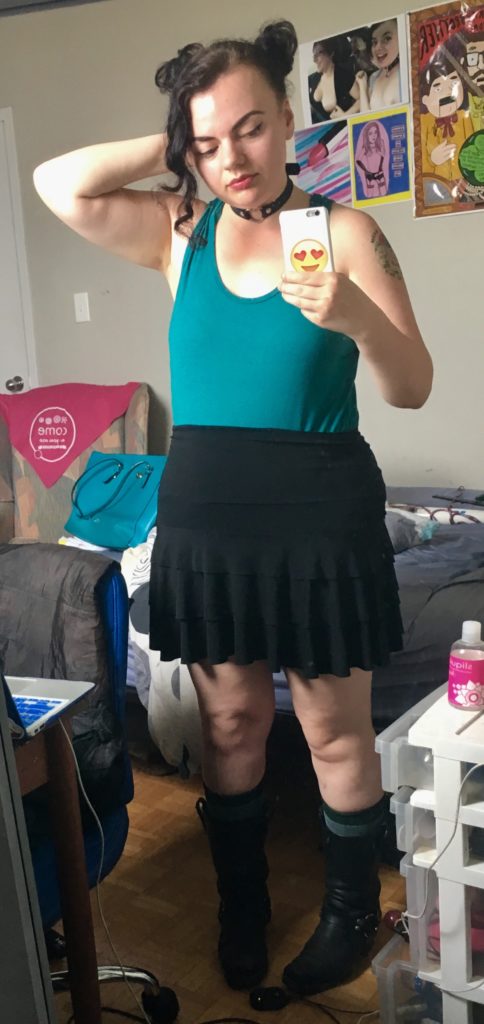 May 31st, 2018. When I went to see
May 31st, 2018. When I went to see  June 10th, 2018. I’m bad at taking weekends off. That’s just #FreelancerProblems, I guess: when you’re (mostly) your own boss, get to set your own hours, and know that working harder = making more money, sometimes it’s hard to stop. So what was supposed to be my “nice relaxing Sunday afternoon” turned into
June 10th, 2018. I’m bad at taking weekends off. That’s just #FreelancerProblems, I guess: when you’re (mostly) your own boss, get to set your own hours, and know that working harder = making more money, sometimes it’s hard to stop. So what was supposed to be my “nice relaxing Sunday afternoon” turned into 